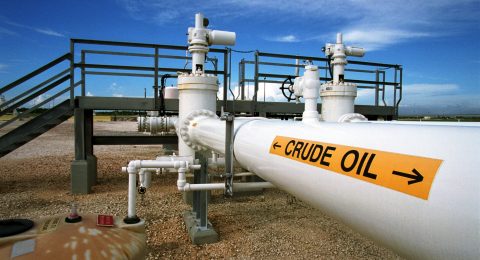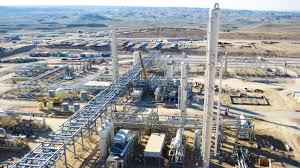South Korea will effectively become the first of Iran’s major Asian customers to halt oil purchases from July 1, when a European Union insurance ban will prevent further imports.
South Korea’s largest oil refiner SK Energy (096770.KS) will stop Iranian oil imports after the ban takes effect, two sources with direct knowledge of the matter said on Monday.
Last month, industry sources said the only other South Korean refinery that buys Iranian crude, Hyundai Oilbank, would stop imports from June.
Iran exports most of its 2.2 million barrels of crude per day to Asia, home to its four biggest buyers China, India, Japan and South Korea.
But U.S. and EU sanctions aimed at halting Iran’s nuclear program by reducing its oil revenues have made purchases difficult, with the impending EU ban on insurance for Iranian crude shipments so far proving an effective deterrent as all Iran’s Asian customers struggle to secure coverage.
The sources declined to be identified because they were not authorized to speak to the media on a topic the Korean government considers politically sensitive.
“SK Energy won’t lift Iranian crude oil after lifting a 2 million barrel cargo in early June,” one of the two sources said. “SK Energy will not import Iranian oil for July arrival.”
SK Energy had agreed to import 130,000 barrels per day (bpd) of Iranian crude this year under a long-term supply deal, while Hyundai Oilbank had agreed to import 70,000 bpd.
Both refiners have declined to comment on their plans.
INSURANCE STUMBLING BLOCK
The United States and Europe are trying to squeeze the revenues Iran makes from oil exports to force it to halt a nuclear program they fear will be used to make weapons but which Tehran says is for power generation.
South Korea’s government has shied away from taking an official stand on the issue of Iranian oil imports. The United States is its main guarantor for security against North Korea, which has a nuclear weapons program.
Seoul is seeking a waiver from the U.S. financial sanctions by reducing its oil imports from Iran and has been negotiating with the EU over the insurance ban.
The government is also believed to be taking actions to limit exports to Iran, over concerns that Iran will struggle to make payment as its foreign exchange earnings are squeezed.
Japan, the only Asian nation to have secured a waiver from U.S. sanctions, cut its Iran crude imports in May by about 60 percent compared to the average of the first three months of the year.
South Korea has cut its imports by just over a fifth year-on-year for the same period.
China and India, major trading partners with Iran, have reduced oil purchases, but both nations have publicly said they do not support the unilateral sanctions of the EU and the United States against Tehran and have not asked for a waiver.
Customs data released on Monday, however, showed China had cut crude imports from Iran by just over 30 percent in the first four months of the year compared with the same year-earlier period. China reduced imports in the first few months of the year as it negotiated terms with Iran for annual supplies.
Industry watchers say the marine insurance sanction will be the most effective measure by Western nations in 17 years of tightening the screws on Iran’s nuclear program.
The EU sanction bans EU insurers and reinsurers from covering tankers carrying Iranian crude anywhere in the world. Around 90 percent of the world’s tanker insurance is underwritten in the West.
Asian crude buyers have asked their governments to provide state-guaranteed insurance coverage for their Iran oil shipments. A supertanker carrying around 2 million barrels of oil would typically have $1 billion insurance cover against personal injury and pollution claims.
But Indian state insurers have refused to cover Iranian imports, fearing the action could fall foul of the EU ban. However, refiner MRPL (MRPL.NS) turned to an Iranian insurer to cover a crude cargo that arrived last week, sources with knowledge of the matter said on Monday.
Source: Reuters











